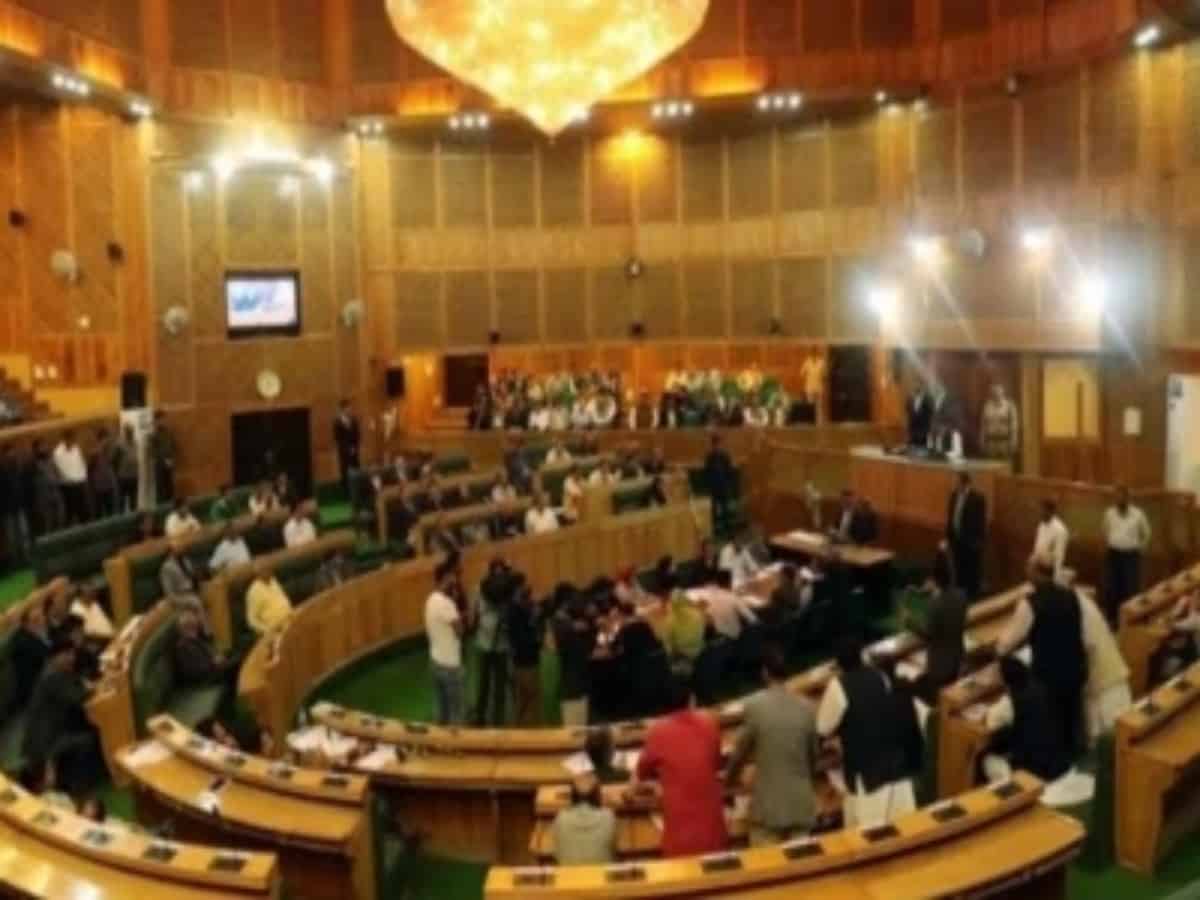
Jammu: A day before the expiry of its term, the delimitation commission finalised its report recommending 90 Assembly constituencies and two nominated members of the Kashmiri migrant community for Jammu and Kashmir Legislative Assembly.
In a significant development, the commission has recommended two nominated members (one of them a female) from the Kashmiri migrant community who will be given power at par with nominated members of the Legislative Assembly of Puducherry where the nominated members have the right to vote.
The delimitation commission was headed by Justice (Retired) Ranjana Prakash Desai and comprised Chief Election Commissioner (CEC), Sushil Chandra and State Election Commissioner (SEC), K.K. Sharma.
The commission has finally recommended 90 Assembly constituencies, changed names of some constituencies and shifted a few Tehsils and Patwar Halqas from one segment to another, and made a significant recommendation for nomination of two Kashmiri migrants including a woman to the Legislative Assembly.
For the refugees of Pakistan occupied Jammu and Kashmir (PoJK), the commission has recommended that the central government may consider giving these displaced persons some representation in the Assembly by way of nomination of their representatives.
Nine constituencies have been reserved for Scheduled Tribes (STs) and seven for Scheduled Castes (SC). All seven SC reserved seats fall in the Jammu division while out of nine constituencies reserved for STs, six are in Jammu region and three in Kashmir division.
Gulabgarh (Reasi district), Rajouri, Budhal and Thanna Mandi (Rajouri district), Surankote and Mendhar (Poonch district) in Jammu region while AGurez (Bandipora), Kangan (Ganderbal) and Kokernag (Anantnag) district in Kashmir division have been reserved for ST candidates.
Ramnagar (Udhampur district), Kathua (Kathua district), Ramgarh (Samba), Bishnah, Suchetgarh, Marh and Akhnoor (Jammu district), all in Jammu region have been reserved for SC candidates.
The commission has given 47 Assembly seats to Kashmir division, increase of one seat and 43 constituencies to Jammu region, increase of six seats as compared to the last assembly which was dissolved in 2018.
After draft proposals, the commission conducted final round of internal meetings to examine suggestions and changed names of some constituencies including Padder as Padder-Nagseni (Kishtwar district), Kathua North as Jasrota, Kathua South as Kathua (Kathua district), Khour as Chhamb (Jammu district), Mahore as Gulabgarh (Reasi district) and Darhal as Budhal (Rajouri district) in Jammu region.
In Kashmir division, Tangmarg constituency has been renamed as Gulmarg, Zoonimar as Zadibal and Sonwar as Lal Chowk.
The commission accepted representations pertaining to shifting of tehsils from one constituency to another.
In Jammu division, Darhal tehsil has been shifted from Budhal Assembly segment to Thanna Mandi while in Kashmir Srigufwara tehsil has been shifted from Pahalgam to Bijbehara, Kwarhama and Kunzar tehsils to Gulmarg and redrawing Wagoora-Kreeri Assembly seat having Kareeri and Khole tehsils and part of Wagoora and Tangmarg tehsils.
For the first time, nine seats have been reserved for ST candidates, six in Jammu and three in the Valley. Seven seats have been reserved for SC candidates as was the case in the previous Assembly as well.
The commission has redrawn the Anantnag Parliamentary constituency in Kashmir by adding Rajouri and Poonch Assembly seats to it those fall in Jammu region. There are five Parliamentary constituencies in the Union Territory with each having 18 Assembly seats.
Five Parliamentary seats include Baramulla, Srinagar, Anantnag-Rajouri, Udhampur and Jammu. None of them is reserved either for SCs or for STs.
“The commission has seen the Jammu and Kashmir region as one single Union Territory. Therefore, one of the Parliamentary constituencies has been carved out combining Anantnag region in the Valley and Rajouri and Poonch of Jammu region. By this reorganisation, each Parliamentary constituency will have an equal number of 18 Assembly constituencies,” the statement issued by the commission said.
The commission visited the Union Territory twice during which it interacted with delegations as well as officials.
“The peculiar geo-cultural landscape of the Union Territory presented unique issues arising due to factors like competing political aspirations of the geographically and culturally distinctive regions,” it added.
The Commission associated in its work, five members of Lok Sabha elected from the UT of Jammu and Kashmir. These Associate Members were nominated by the Speaker of the Lok Sabha.
The number of seats to be reserved for the SCs and STs in the Assembly was worked out on the basis of 2011 Census.
Earlier, the Constitution of erstwhile Jammu and Kashmir state did not provide for reservation of seats for the Scheduled Tribes in the Assembly.



